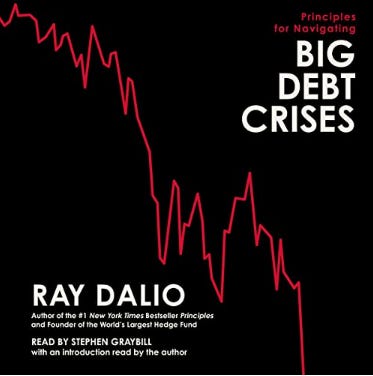When novice traders ask me for guidance on where to start their trading journey, I usually point them in the direction of my favorite trading books. It would be impossible for me to help a new trader get up to speed with the markets via this blog, or even through one-on-one mentorship, as the amount of knowledge and experience required to become a competent trader is too vast for me to transfer.
For that reason, I’m sharing my global macro reading list. Beginning traders can use this list as a curriculum for training, and intermediate to experienced traders can find hidden gems that they haven’t read before. The list of books might seem daunting, but if you read one book a month, you will have learned a great deal in a year’s time. The list is designed so that beginners can start from the top and work their way down. If any of you have suggestions for books that should be included on this list, please write it in the comments, and I will try to read each suggestion and add them at my discretion.
Market Wizards, by Jack Schwager. This classic has a soft spot in my heart because it was one of the first books I read on trading, and it inspired me to start my trading career. The interviews describe many different styles and personalities of traders and offer timeless lessons on the markets. Beginners can look to this book to decide what strategies and styles suit them, as well as get inspiration from the many stories of success and failure. There are multiple books in this series and I’ve read them all.
Alpha Trader, by Brent Donnelly. Very few books attempt to cover so many aspects of trading and succeed. I found this book to be helpful even when I read it a couple years ago, and it’s a must-read for beginners.
A Complete Guide to the Futures Market, by Jack Schwager. This book is an excellent reference to learn the basic mechanics of futures trading, and then goes a step further to teach technical analysis, strategy building, and much more.
For pure technical analysis, I recommend Technical Analysis of the Financial Markets, by John Murphy, and Technical Analysis of Stock Trends, by Edwards and Magee. The former is wide-ranging and comprehensive and includes some stuff that I personally don’t use or believe in, whereas the latter focuses only on classical charting, which I am more of a believer in.
Central Banking 101, by Joseph Wang. Quantitative easing, reverse repo…what do these terms even mean? Understanding the plumbing of the global financial system is integral to trading global macro, and Joseph Wang explains it all in a way that the average person can understand.
Big Debt Crises - by Ray Dalio. Take a walk through the history of debt crises and learn the patterns of how market participants and policymakers react to them. Being a student of history is an important part of trading global macro, and this is one of the best history books. After you read this one, check out Principles for Dealing with the Changing World Order.
Geopolitical Alpha, by Marko Papic. Figuring out how geopolitics will affect the market is one of the most difficult aspects of trading global macro. Marko Papic provides some useful frameworks for trading geopolitics so that you can profit without having to be an “expert” on anything.
Trading Psychology 2.0, by Brett N Steenbarger. This is a book for intermediate to advanced traders who have already figured out a trading style or strategy and want to improve their performance and process. The book discusses not only psychology, but also ways to improve your processes and adapt to changing market environments.
Manias, Panics, and Crashes, by Charles P. Kindleberger. Get a front seat into some of the biggest bubbles and crashes that mankind has seen. The markets change and evolve over time, but human nature stays the same. With today’s crypto, NFT, and equity markets, there are bubbles and crashes happening on a daily basis.
Narrative Economics, by Robert Shiller. When you realize that the stuff we call “fundamentals” is really just narratives that come and go, you’ve finally looked into the Matrix. Schiller discusses how narratives drive not only markets, but also the real economy and politics.
The Next Perfect Trade, by Alex Gurevich. Alex is one of the best global macro traders out there, and I’ve gained valuable insights from his books. One of the key concepts of this book the idea of a dominant trade. This refers to the trade that is most likely to be profitable in various scenarios. For instance, in a situation of slowing growth and increased risk aversion, being long Treasuries is considered the dominant trade compared to shorting equities. This is because policymakers tend to support the economy by reducing interest rates, which benefits Treasury long positions but could lead to a squeeze in equities.
Thinking, Fast and Slow, by Daniel Kahneman. This is a groundbreaking book by Nobel laureate Daniel Kahneman, which delves into the dual systems that govern human thought. System 1 is fast, intuitive, and emotional, while System 2 is slower, more deliberative, and more logical. Kahneman explores the impact of these systems on our behavior, decision-making, and judgment, often highlighting the biases and errors that can occur. For traders, this book is particularly useful as it offers deep insights into the psychological aspects of decision-making in the financial markets.















Except list. Thanks. I would add “Fooled by Randomness” by Taleb.
Thank you for the list, some of those are now on my reading list. It would also be great if you could also do a post talking about what your daily/weekly reading regimen looks like. What do you read on a regular basis? Newsletters? Substacks? Publications? Thanks!!